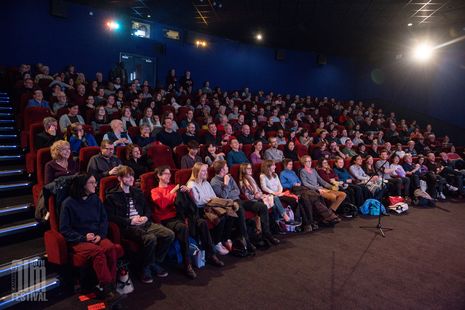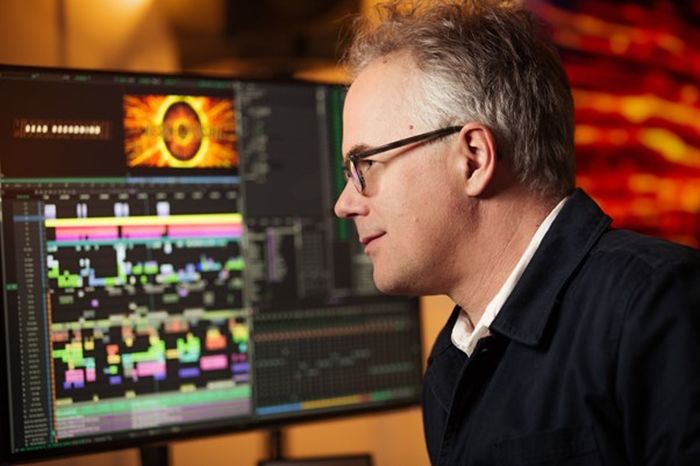Behind the scenes of the Cambridge Film Festival
Ella McCartney talks to the Cambridge Film Festival’s programming lead, Elle Haywood, about this year’s film selection and her advice for festivalgoers

Since the Cambridge Film Festival’s inception in 1977, cinema lovers throughout Cambridge have piled into the Arts Picturehouse on St Andrew’s Street each year to experience a showcase of world cinema. With the intention of highlighting independent filmmakers and recovering films out of distribution, the UK’s second longest running film festival is returning this October, screening almost 100 films from 30 different countries, 50% of which are female-directed. The festival’s programming panel Lead, Elle Haywood, reveals the history behind the festival and the process behind selecting a film.
What was the first Cambridge film festival (CFF) like?
The CFF began in 1977 at a really pivotal moment in film history, showing premieres of films by Ingmar Bergman and Robert Altman, to name a few! The Arts Picturehouse (APH) was only a single-screen cinema at this time, so each film was given a great chance to shine! As a bustling university town with an international cohort, the chance to see arthouse films was probably a nice, familiar experience.
What’s special about this year’s film selection?
It is a reflection of stories which are being told this year, which all connect in a myriad of ways. We look for films that resonate with us, this year a lot of the films feel very raw, and personal, but very healing as well. There is a sense of inner growth, finding joy in the little things in life, and finding the courage to face the world. I think we as a society need that energy and outlook after the previous years.
“We look for films that resonate with us”
How do you go about selecting a film?
The programming team watch a huge variety of titles across the year, from films in Sundance, US in January, all the way to the Venice Lido in Italy in August. We share films as a panel – there’s a lot of agreeing (and disagreeing!), strategising and reflecting – then we whittle this down to a shortlist over the year, which changes a lot! Ultimately, we want the film to find a home at the festival, to reach a passionate audience (which we have) and to leave a lasting impression.
What’s your favourite English-language film from this year’s selection and why?
After working on this programme for so many months, I can’t pick a favourite! I will give a shout-out to Luna Carmoon’s Hoard, which swept up four awards at the Venice film festival. It is a striking and unsettling story about grief and love, how this follows us from childhood to adulthood, and the forms that trauma, sexuality and loneliness take as we try to come to terms with the past.
What’s your favourite foreign-language film from this year’s selection and why?
Same as the above – no favourites! I think one foreign-language film which will stay with people is the UK premiere of Margreth Olin’s Songs of Earth. Immersing us in the tumbling Norwegian fjords, this documentary is an ode to the planet’s changing landscape, generational histories, and the seasons of life and death, for humans and nature.
How should a festivalgoer approach the films and events on offer this year?
You can’t miss The Powell and Pressburger strand, which includes stunning restorations including The Red Shoes and I Know Where I’m Going! We are also honouring Asif Kapadia with our Outstanding Contribution award and celebrating his incredible body of work by diving into his documentaries, including Senna, and his first feature, The Warrior. The short film strands, curated by my colleague Abby, are always an utter treat – don’t miss these either!
“The festival has always been a place for community and celebration”
What’s your favourite and least favourite part of the job?
My favourite part of the job is working with the festival team! Everyone is so dedicated, hardworking and optimistic, even in the tough moments. My least favourite part is that I would love to take more films, but it’s a really tough time for the industry, so regional and independent festivals do have limitations.
Have you always wanted your job to involve film?
I was always determined to forge a career in the creative sector, but it wasn’t until my final year of university at Anglia Ruskin University, that I fully realised I could work in the film industry. I freelanced as a film reviewer, and then moved into festival curation. I earned my MA in Programming and Curation at the National Film and Television School, and have worked with multiple festivals, cinemas and organisations since, including CFF, the British Film Institute, Sundance London, Picturehouse Cinemas, etc.
Favourite anecdote from working at the Cambridge Film Festival?
Last year, we screened Georgia Oakley’s Blue Jean, a film set in the north of England, about a gym teacher who had to hide her identity due to Section 28. We hosted a Q&A with producer Hélène Sifre, and Professor Catherine Lee, whose experiences helped inspire and shape the film. It was an incredibly moving experience, to witness Catherine share her story with this cinema full of students and young people. The questions from the audience were really considerate and bold, and I think it left a lasting impression on all of us. It was really special.
Do you notice a town-gown divide in your work?
Not hugely. I think film festivals are spaces that really unite folk. There is no rule book about who should like or watch a certain kind of film, and that’s really true of CFF’s diverse audience.
Why do you think people love the Cambridge Film Festival so much?
The festival has always been a place for community and celebration. We put on such a unique range of films, so I think our audience knows they will always find something special in the programme. Our Youth Lab and volunteers do a great job at sharing their pick of films with curious customers, and putting up amazing displays. The energy from the whole CFF and Picturehouse team is amazing, and after 42 editions, I hope we have become a staple in the city’s creative calendar!
If you could send a message to all the students here, what would it be?
Pick up a brochure, grab a Sharpie, and circle a few films that sound intriguing, exciting and also something you would never normally choose. Head down to APH in the evening, grab a popcorn and immerse yourself in these stories! Maybe you’ll discover your new favourite film …
 News / Judge Business School advisor resigns over Epstein and Andrew links18 February 2026
News / Judge Business School advisor resigns over Epstein and Andrew links18 February 2026 News / Hundreds of Cambridge academics demand vote on fate of vet course20 February 2026
News / Hundreds of Cambridge academics demand vote on fate of vet course20 February 2026 News / Petition demands University reverse decision on vegan menu20 February 2026
News / Petition demands University reverse decision on vegan menu20 February 2026 News / CUCA members attend Reform rally in London20 February 2026
News / CUCA members attend Reform rally in London20 February 2026 News / Gov grants £36m to Cambridge supercomputer17 February 2026
News / Gov grants £36m to Cambridge supercomputer17 February 2026










